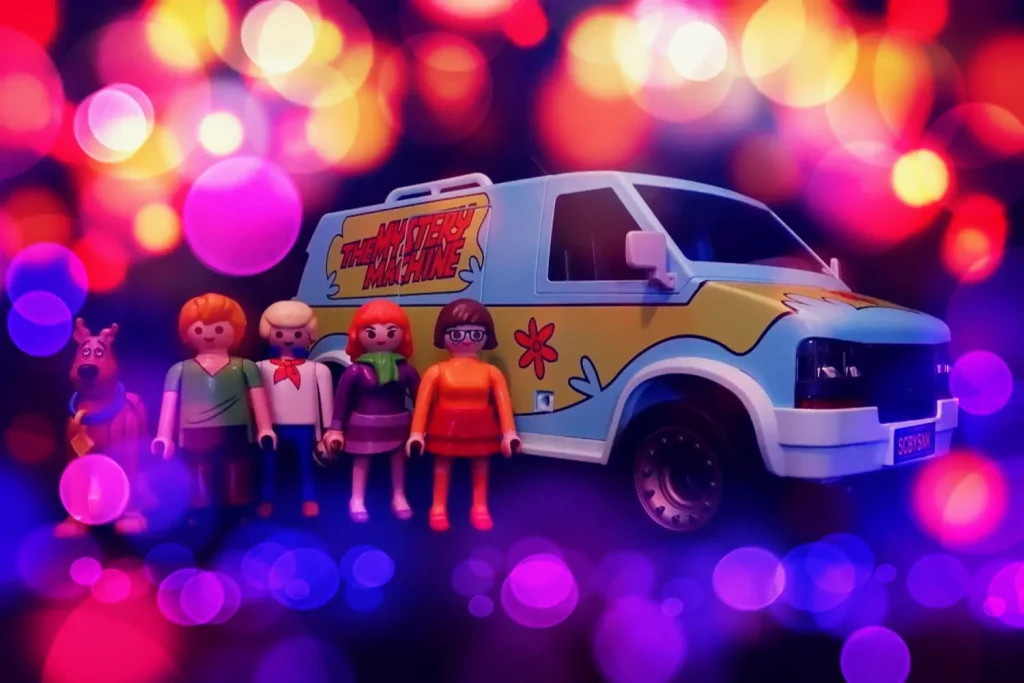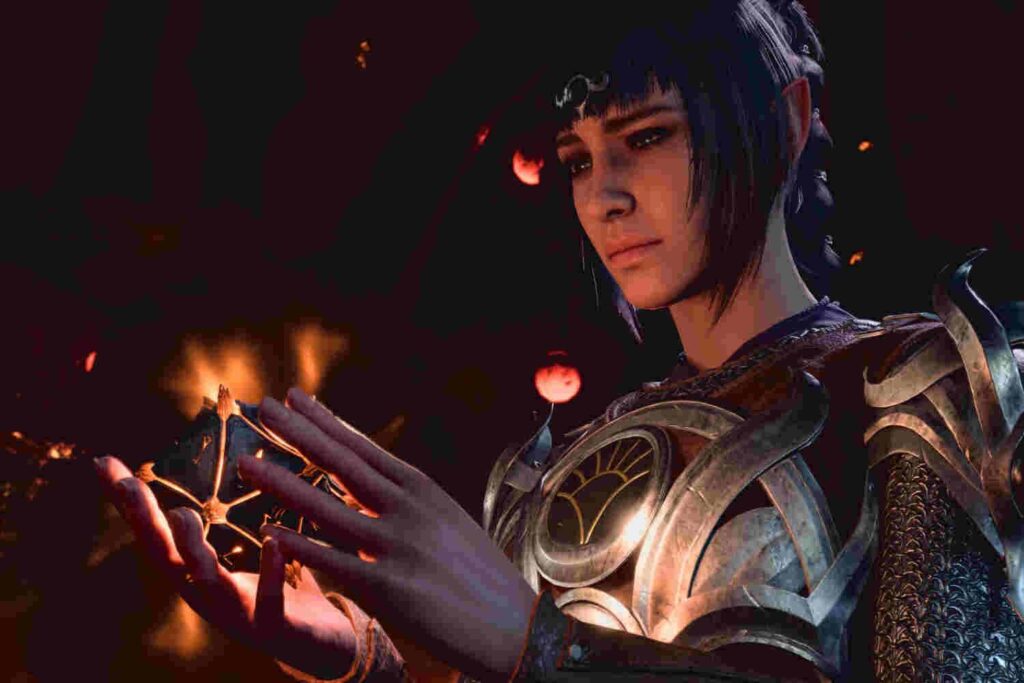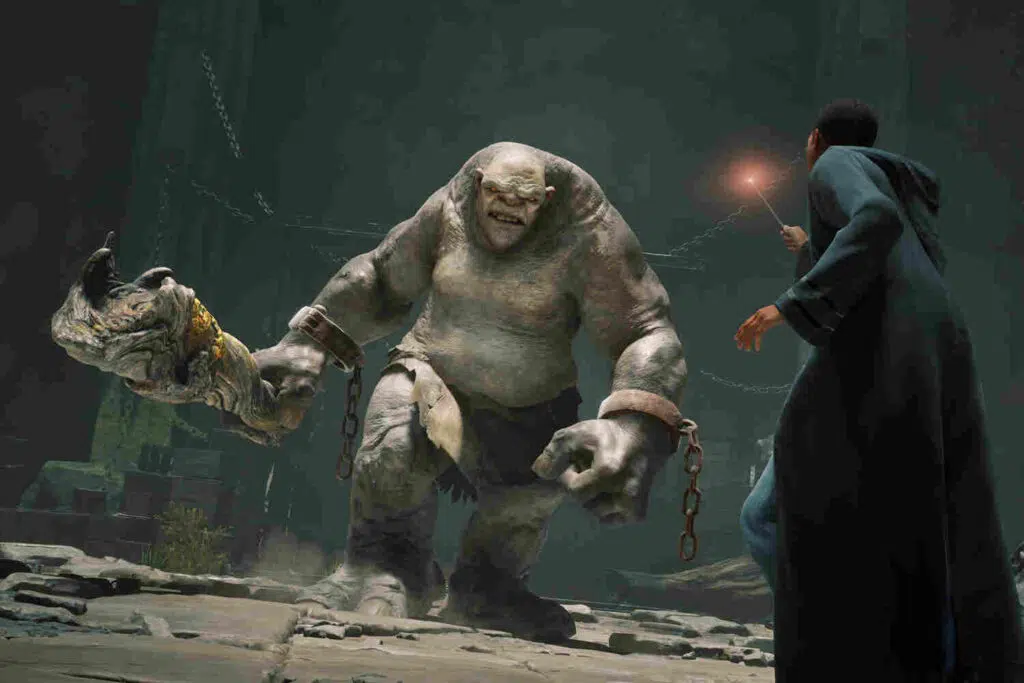Bizarre Movies Like Everything Everywhere All At Once

What do you get when you roll an Asian mom, mind-bending visual effects, mental health commentary, and the decimation of the time-space continuum into a single, juicy spliff? Extremely bizarre movies like Everything Everywhere All at Once, of course. A dish best served alongside a melted mind and a bowl of freshly ground herb.
Photo: Flickr
Get Out (2017)
There is a lot happening in Everything Everywhere All at Once. But at the forefront is a story of a mother and daughter trying to reconnect in a confusing and difficult world. The heart of the film is this strained relationship, particularly the layers of sociocultural barriers that complicate it even further. Of course in this film, healing is the ultimate goal.
In Get Out, however, the undoing and redefining of these very concepts is the real key. And in doing so, the true horror beneath these concepts is brought to light.
Unlike the titular film, Get Out isn’t a trippy mind-bending visual. But director Jordan Peele does make stunning use of visual storytelling, much like Everything Everywhere All at Once does.
Frequently Asked Questions About Time Travel (2009)
Beyond its deeper philosophical aspects, Everything Everywhere All at Once is also a movie about time traveling and dimension hopping, with bouts of side-splitting comedy peppered in. And if that’s your style, then this movie is definitely for you.
Two geeks and a cynic have a chance encounter with a time traveler. One of them receives a vision of his untimely demise. And the group must now try and unravel the conundrum of time travel and return safely to their own timeline.
Described as “Dr Who meets Shaun of the Dead,” this is definitely an underrated gem lost in time.
Men (2022)
Production house A24 has been consistent in its ability to deliver thought-provoking yet mind-bending works of art, particularly in the horror genre. And Men is no exception.
The story follows Harper, whose recent traumatic experiences have pushed her to seek comfort in a small, quiet town. Unfortunately for her, there is something horrifyingly eerie about the people of this town.
As the title implies, this movie grapples with men, masculinity, patriarchy, and its impact on people of all genders. Yet, unlike many films that use these concepts rather superficially, this is a film that digs pretty deep and layers in fantasy and lore to drive home a rather grotesque point.
Ex Machina (2014)
One of the major components that makes bizarre movies like Everything Everywhere All at Once so outlandish is their ability to get under your skin. And one of the best ways to do that is by peeling back the skin – sometimes literally – and uncovering the humanity beneath.
Ghost in the Shell (1995) was revolutionary for the sci-fi genre. It introduced audiences to the debate around man versus machine but threw a wrench in the conversation by removing the line between them altogether. What was left was the simple question “what makes us human?”
A24’s Ex Machina, nearly two decades later, presents the same debate to its audience. And much like its predecessors, it asks questions about intelligence, self-determination, humanity, and more.
A.I. Artificial Intelligence (2001)
A.I. centers on a robotic boy who yearns for his foster mother’s love. A modern-day sci-fi version of Pinocchio, this movie earned acclaim for its visual effects and Steven Spielberg’s direction style. It earned just as much praise for its acting as well as its score.
But what hit fans the hardest was, ultimately, the emotional weight of the relationships the movie explores. And for many, the film would serve as a reminder to cherish the people and the moments we love most, for they may be gone tomorrow.
The Matrix (1999)
If visual storytelling, philosophical writing, dystopian futures, and questions around humanity are things you enjoy, then your binge session would be incomplete without yet another viewing of the original Matrix film that launched the franchise.
Thomas Anderson, a regular computer programmer in a mundane world, finds himself caught in a battle between man and machine. When the weight of humanity’s survival falls on his shoulders, he must become something beyond man or machine.
Matrix was as genre-defying as it was genre-defining. It reshaped what most people thought was possible. And that is true both from visual effects and storytelling standpoint as it is from a philosophical one.
Tenet (2022)
Memento (2000) offered audiences one of the most novel and unique storytelling techniques: telling it in reverse. Tenet is, essentially, that technique but on a ton of steroids.
The story follows The Protagonist, a CIA operative who unwittingly finds himself in the middle of a time-traveling war. As the battle rages on both forward and backward, each step takes him closer to uncovering the mystery behind this war. And with each step he takes, your mind is going to turn further into mush. And that just makes it an infinitely better experience.
The Butterfly Effect (2004)
Time travel, of course, is an extremely tricky concept to portray. And it is only further complicated by the inclusion of alternate timelines and versions of characters. But what Everything Everywhere All at Once managed to accomplish expertly was blending such vast concepts into a cohesive storyline and still managing to deliver a powerfully profound message.
The Butterfly Effect, despite being decades older and featuring less refined visual effects, manages to accomplish a similar feat. And it does so by building its eccentric world around an interesting concept. That “you can’t change who people are without destroying who they were.”
Lucy (2014)
A 25-year-old Lucy finds herself at the mercy of captors who hope to use her as a drug mule. The deal goes terribly wrong, or right – depending on how you view the performance-enhancing abilities she unlocks and the casual murders she ends up committing along her journey to get her life back.
Lucy is a relatively understated film for something that is so layered and nuanced. And as far as bizarre movies like Everything Everywhere All at Once go, this certainly fits the bill. Director Luc Besson crafted “the first part of Lucy to be like Léon: The Professional, the second part to be like Inception, and the third part to be like 2001: A Space Odyssey.” In addition to this ride, he also layered in visual effects in a way that gets progressively more bizarre, perfectly aligning with where the story eventually goes.
This, perhaps, explains why the film drew in such polarized reviews, despite otherwise being a commercial success.
The Unbearable Weight of Massive Talent (2022)
Speaking of polarizing successes, every now and then you might find yourself Googling what Nic Cage is up to these days. And each time you might find yourself exposed to an entirely new arc in his story.
His more recent arc was a series of stunning psychedelic horror movies. But his latest offering is a comedy that most definitely rivals the absolute absurdity of bizarre movies like Everything Everywhere All at Once.
In this film, Cage plays Cage playing all the Cages in an attempt to save himself amid a battle between a rich fan and the CIA.
Upgrade (2018)
Visual storytelling gets the ultimate upgrade in the hands of director Leigh Whannell.
After a harrowing attack leaves Grey paralyzed and a widower, he harbors a deep yearning for revenge. This distant dream becomes a reality when he is implanted with an experimental chip that restores his mobility. Unfortunately, it happens to come with a side-effect – intelligence and a desire to become human.
Upgrade uses visual effects and cinematography in tandem to create a stunningly gorgeous film. Paired with an extremely witty and dark script, this is a must-watch.
Sucker Punch (2011)
A hallmark of bizarre movies like Everything Everywhere All at Once is how nuanced they are. But as powerful as movies with layers can be, few have executed the concept quite like Zac Snyder’s Sucker Punch.
The tale follows Babydoll, a young girl who has her whole life stripped away from her and is forced to endure the mental institution from hell. As she uses fantasy to escape her reality, the worlds collide into a kaleidoscope of visual glory.
Melancholia (2011)
Surrealist art definitely informed the visuals of Everything Everywhere All at Once. While many films have attempted to craft mind-bending experiences using surrealism, few have succeeded quite as well as Melancholia.
It follows a family grappling with deep sadness as they ponder life, all while the planet of Melancholia is on a collision course with Earth.
The film is a visual manifestation of depression, according to director Lars von Trier. Yet, instead of depicting it in the standard dreary way, von Trier chooses to create one of the most immaculate visual experiences to ever grace our screens.
Mulholland Drive (2001)
From a surrealist dream to a surrealist nightmare, Mulholland isn’t just a David Lynch masterpiece. It is a cinematic marvel that deserves all the acclaim it received, both upon its release as well as in its restored form.
The film follows a young actress who befriends an amnesiac and helps her on her journey to recover her lost memories. And if that sounds straightforward enough, boy are you in for the most riveting and jarring experience of your life.
Alice (1988)
A visual spectacle is, of course, more than computer-generated effects. Long before the modern era, directors relied on practical, in-camera effects. And one of their most successful tools of choice, when it came to creating bizarre movies like Everything Everywhere All at Once, was blending live action with effects like stop motion.
The result was movies like Alice, a spiritual predecessor to horrifying and enchanting movies like Coraline. And, perhaps, the most terrifying adaptation of Lewis Carroll’s beloved classic.
Nightmares Do Come True
Surrealism is, perhaps, one of the best ways to tackle philosophy. After all, while the truth may be stranger than fiction, it only appears so because fiction has to make cohesive sense. Truth, however, can be as irrational as it desires.
And if there’s one thing these bizarre movies like Everything Everywhere All at Once show us, it’s that truth can do more than just set you free. It can unravel and reshape you till you’re nothing and everything, all at once.












